Chen to serve on the American Spinal Injury Association Board of Directors
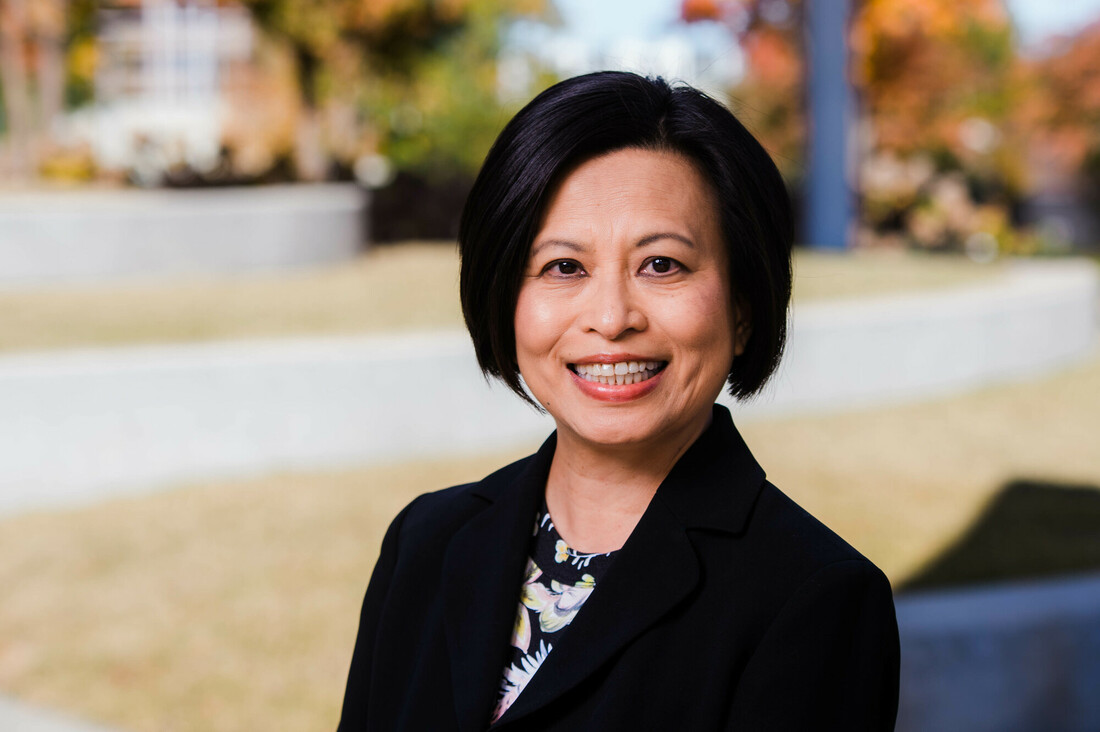 The American Spinal Injury Association (ASIA) selected Yuying Chen, M.D., Ph.D. to serve on the organization’s board of directors.
The American Spinal Injury Association (ASIA) selected Yuying Chen, M.D., Ph.D. to serve on the organization’s board of directors.
Professor Yuying Chen, M.D., Ph.D. is the Director of Research in the Department of Physical Medicine and Rehabilitation in the UAB Marnix E. Heersink School of Medicine. Since 2005, she has served as Project Director of the National Spinal Cord Injury Statistical Center, which is within the department of PM&R. She has led a number of studies and published over 100 manuscripts and book chapters, most of which involved the use of the National SCI Database.
Chen is well-known for her commitment to advancing research in spinal cord injury research. Her exemplary leadership within the American Spinal Injury Association, overall contributions to the field, as well as being a well-respected thought leader, are among the reasons for her nomination.
As a member of the ASIA BOD, Chen will serve the organization in multiple capacities, including engaging as a board liaison to committee(s); contributing to organizational development and membership,; and promoting the vision of the organization.
The American Spinal Injury Association’s mission is to advance care, education, and research to improve the lives of persons affected by spinal cord injury. ASIA is governed by a Board of Directors, whose membership composition is reflective of the multidisciplinary nature of its members. There are 10 Directors, three of whom also serve as elected Officers. Board members may serve up to 3 two-year terms, for a total 6 years.
PM&R Welcomes Class of 2027 PGY1 Residents
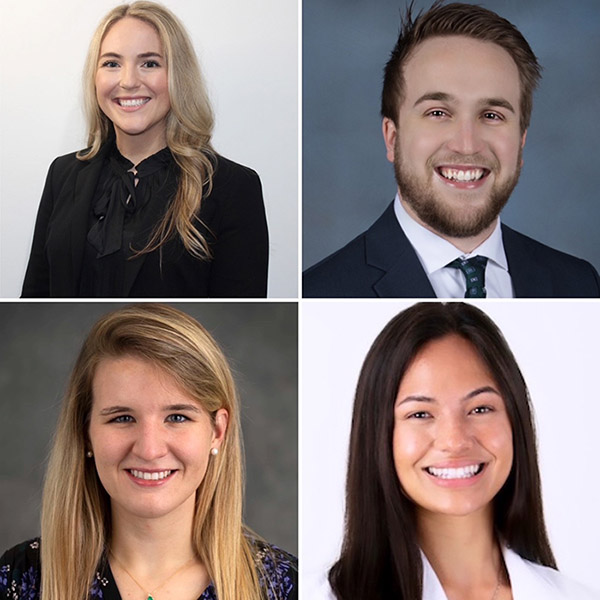 After a successful interview season and Match process, we are excited to welcome four new PGY1 residents to the Dept. of Physical Medicine & Rehabilitation at the end of June. The incoming PGY1 PM&R residents are Victoria Christian (Campbell University Jerry M Wallace School of Osteopathic Medicine), Charlotte DeRose (Alabama College of Osteopathic Medicine), Katharyn Lindborg (Florida State University College of medicine), and Casey Pierce (UAB Heersink School of Medicine).
After a successful interview season and Match process, we are excited to welcome four new PGY1 residents to the Dept. of Physical Medicine & Rehabilitation at the end of June. The incoming PGY1 PM&R residents are Victoria Christian (Campbell University Jerry M Wallace School of Osteopathic Medicine), Charlotte DeRose (Alabama College of Osteopathic Medicine), Katharyn Lindborg (Florida State University College of medicine), and Casey Pierce (UAB Heersink School of Medicine).
This incoming class will be the first group of residents to participate in a 4-year categorical residency program within UAB PM&R. Previously residents completed their intern year in a different program before joining UAB. This change to a 4-year program has been a priority for PM&R leadership.
This extensive process began over two years ago following the approval for funding of four additional resident positions. This allowed PM&R to apply to the Accreditation Council for Graduate Medical Education (ACGME) for the addition of a PGY1 training year to our already accredited 3-year residency program.
Obtaining full ACGME approval was a 15-month project from start to finish. The design, planning, and project management for the PGY-1 year started under the leadership of Danielle Powell, M.D., Interim Chair & Associate Program Director and Conley Carr, M.D., Interim Residency Program Director, in January 2021. Lauren Hanhauser, Education Administrator, handled all documentation and submission organization for this project.
The Graduate Medical Education Office at UAB Hospital, the sponsoring institution, and the UAB Marnix E. Heersink School of Medicine supported the program in this application and confirmed that there is adequate educational opportunities and funding for 4 PGY1 positions.
Dale Colorado, D.O., Vice Chair of Education and Residency Program Director, is excited about the direction and growth of the program, “Transitioning to a 4-year program allows our residency program to have oversight of all 48 months of training. Our leaders were able to create a PGY1 rotation schedule that incorporates training from many different departments within UAB.” He added, “Many applicants prefer to complete all of their residency training in one location. We are very excited to offer this comprehensive training within the UAB system starting from day one.”
The PM&R team is proud of the work everyone put into making this a success and to create this training pathway at UAB for future learners and trainees. The program will benefit from this opportunity and resources for training these additional residents from the following Divisions and Departments within UAB: Family & Community Medicine, Sports and Exercise Medicine, Hospital Medicine, Occupational Medicine, Surgery and Trauma, Neurology, Immunology and Rheumatology, Critical Care Medicine, Gerontology, Palliative Care, and others.
The department looks forward to the growing opportunities in Physical Medicine and Rehabilitation and supporting the development of and maintenance of accreditation for the full 48-month PGY1-PGY4 PM&R residency program at UAB.
Yuying Chen, M.D., Ph.D. selected to receive the ACRM 2023 SCI-ISIG Margaret Nosek Award
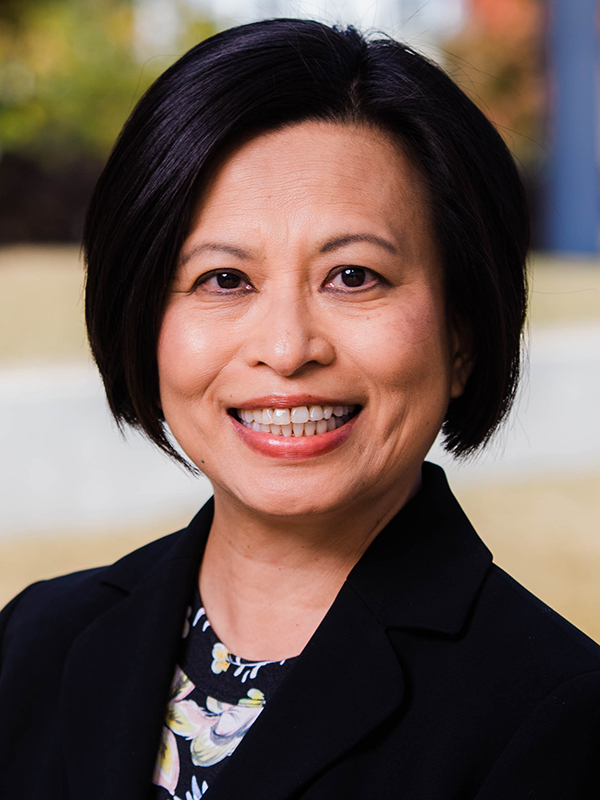 The American Congress of Rehabilitation Medicine’s (ACRM) Spinal Cord Interdisciplinary Special Interest Group selected Yuying Chen, M.D., Ph.D. to receive the Margaret Nosek Award.
The American Congress of Rehabilitation Medicine’s (ACRM) Spinal Cord Interdisciplinary Special Interest Group selected Yuying Chen, M.D., Ph.D. to receive the Margaret Nosek Award.
The Award is given each year as part of the Margaret Nosek Lecture series presented by ACRM SCI-ISIG. This Award recognizes an individual who demonstrates drive and commitment to advancing scientific knowledge, developing standards of clinical practice, raising awareness, and advocating for appropriate health care and community support for women with disabilities.
Dr. Margaret Nosek was an internationally recognized authority on the health of women with disabilities and the Margaret Nosek Award recognizes her contributions through more than 30 years of sharing and disseminating knowledge as a researcher and advocate of disability rights.
“I am so very proud of Dr. Chen for having received this most prestigious award. Dr. Margaret Nosek was a strong champion of rehabilitation research, independent living, and the rights of women with disability. To be an awardee reflects on Dr. Chen’s national stature as a researcher and a leader,” states Vu Nguyen, M.D., chair of the UAB PM&R Department. “Dr. Chen is well recognized in the world of spinal cord Injury (SCI) research and has been the PI of our NIDILRR National SCI Statistical Center 5-year grant currently in its fourth cycle. As impressive as that fact is, it is even more incredible to recognize that UAB PM&R has been the sole holder of this national grant continuously since 1983! Dr. Chen has earned our thanks and will no doubt be recognized among the greatest rehabilitation researchers in our specialty. She is truly deserving of the Margaret Nosek Award.”
Dr. Chen will be recognized as the award winner at the upcoming ACRM Annual Conference in October in Atlanta, GA. This event is the premier interdisciplinary conference for rehabilitation research. Dr. Chen will give a lecture on her research and the future of Spinal Cord Injury rehabilitation.
“I am thrilled to be honored with this award of Dr. Nosek’s namesake. She was such a hero in advocating for the health and wellness of women with disability. I am certainly standing on the shoulder of many giants, including the former chair of the Department, Dr. Amie McLain. Dr. McLain built the first reproductive health clinic for women with disabilities at UAB and has inspired me in research to ensure equitable and quality health care for women with disability,” said Chen.
Professor Yuying Chen, M.D., Ph.D. is the Director of Research in the Department of Physical Medicine and Rehabilitation in the UAB Marnix E. Heersink School of Medicine. Since 2005, she has served as Project Director of the National SCI Statistical Center, which is within the department of PM&R, and has led a number of studies and published over 100 manuscripts and book chapters, most of which involved the use of the National SCI Database.
Kim named recipient of CEDHARS pilot program Funding
 The Center for Engagement in Disability Health and Rehabilitation Sciences (CEDHARS) is pleased to announce the recipients of its FY23 pilot grant funding opportunity, “Inclusive Research in Health and Wellness in Adults or Children with Disabilities.”
The Center for Engagement in Disability Health and Rehabilitation Sciences (CEDHARS) is pleased to announce the recipients of its FY23 pilot grant funding opportunity, “Inclusive Research in Health and Wellness in Adults or Children with Disabilities.”
Yumi Kim, Ph.D., Department of Physical Medicine and Rehabilitation Postdoctoral Researcher, is one of four recipients to receive funding for her research “Effects of Dietary Protein Intake and Resistance Training on Retention of Fat Free Mass During Weight Loss in Adults with Obesity: A Cohort of People with Mobility Limitations”.
CEDHARS’ overarching mission is to advance scientific discovery, translational research, education and engagement in the fields of disability health and rehabilitation sciences. This pilot program aims to support the advancement of disability health research, and this specific funding cycle intended on increasing the field of inclusion sciences, adapting traditional research to be inclusive of people with disabilities. Applications were highly competitive and were peer reviewed using the NIH scoring framework. Four proposals were chosen for $50,000 of funding.
Learn more and read the abstract for Dr. Kim’s project below.
Effects of Dietary Protein Intake and Resistance Training on Retention of Fat Free Mass During Weight Loss in Adults with Obesity: A Cohort of People with Mobility Limitations
• Principal Investigator: Dr. Yumi Kim, Postdoctoral Researcher, Heersink School of Medicine Department of Physical Medicine and Rehabilitation
• Co-Investigators: Dr. Drew Sayer Assistant Professor, Heersink School of Medicine Department of Family and Community Medicine; Dr. Jereme Wilroy, Assistant Professor, Heersink School of Medicine Department of Physical Medicine and Rehabilitation
This study is nested within an ongoing multimodal intervention (high protein [HP] diet and/or resistance exercise training [RT]) aimed at preserving fat free mass (FFM) during weight loss among adults with obesity (≥ 50 years old), using a sequential multiple assignment randomized trial (SMART) design [NCT04014296]. The study protocol of the main trial was adapted for a cohort of people with mobility limitations to
1. examine the feasibility of a 16-week RT and HP diet program (separate and combined) for FFM retention during weight loss; and
2. obtain preliminary estimates of the first and second stages of intervention efficacy and their variances.
In this study, 15 adults with self-reported mobility limitations (based on the perceived difficulty of walking/climbing stairs and use of assistive devices) will participate in an 8-week self-directed RT intervention (1st stage). The response criteria at week 8 are a greater than 5.5% reduction in fat mass (FM) and less than 1.5% reduction in FFM. Participants meeting FM and FFM mass criteria will be identified as “responders” and continue with self-directed RT for the remainder of the study. Participants not meeting both criteria will be identified as “non-responders” and randomly assigned to either an intensified program with supervised RT or a combined program with HP supplements and supervised RT for the remaining 8 weeks intervention (2nd stage). All participants will receive a weekly, group-based, remotely delivered weight loss counseling session (State of Slim [SOS]) during the 16-week intervention, in addition to the RT and/or HP diet prescription. Outcomes include four domains of feasibility metrics (i.e., process, resources, management, and scientific outcomes). The scientific outcomes include body weight and composition (FFM, fat mass) using dual energy X-ray absorptiometry (DXA) and participant feedback via semi-structured interviews.
The long-term goal of this research is to inform the inclusion of cohorts of disability in multimodal interventions addressing diet and exercise. The feasibility component will explore general problem areas in the recruitment, enrollment, and engagement of the program among adults with mobility limitations and identify characteristics of those who have the greatest response to the program. Most importantly, this trial will allow for increased detail on all feasibility metrics to provide valuable information for the design and implementation of larger trials.
Wilroy awarded $3.3 million R01 Grant
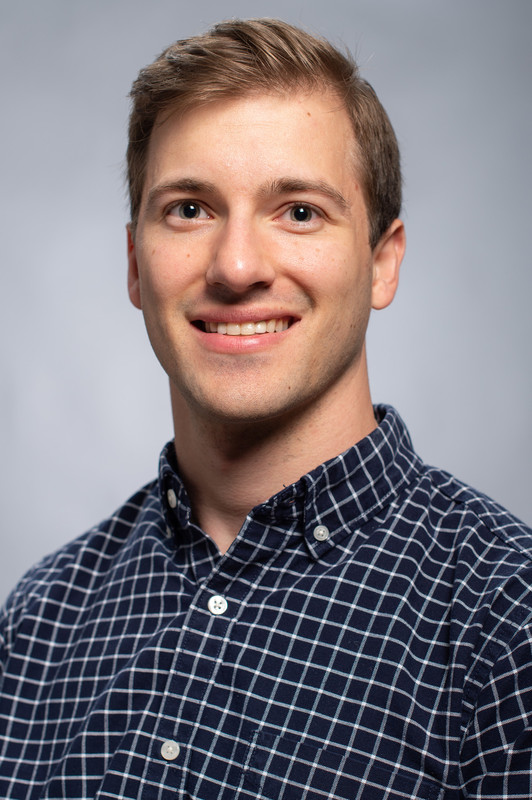 Jereme D. Wilroy, Ph.D., assistant professor for the University of Alabama at Birmingham Department of Physical Medicine and Rehabilitation, was awarded a $3.3 million R01 grant from the National Institutes of Health for his study, “Examining the effects of live telehealth exercise training on cardiometabolic outcomes in wheelchair users."
Jereme D. Wilroy, Ph.D., assistant professor for the University of Alabama at Birmingham Department of Physical Medicine and Rehabilitation, was awarded a $3.3 million R01 grant from the National Institutes of Health for his study, “Examining the effects of live telehealth exercise training on cardiometabolic outcomes in wheelchair users."
There are roughly 5.5 million wheelchair users in the United States, and most live predominantly sedentary lifestyles, which leads to substantially higher cardiometabolic risk factors when compared to the general population.
“We are building on our previous success with a Movement-to-Music (M2M) program that is proven effective in improving health,” explains Wilroy. “We are adapting the M2M telehealth delivery method to develop a program with a cardio emphasis (M2M-C).”
The 24-week M2M-C program includes a remote training system with built-in videoconferencing and real-time monitoring of vital sign data (e.g., heart rate, respiratory rate). The primary aim is to examine the average treatment effects of the M2M-C program on core indicators of major cardiometabolic risk factors.
“We are thrilled that NIH has recognized the need funded Dr. Wilroy’s exercise interventions for health improvement through innovative design and telehealth technology,” states Yuying Chen, M.D., Ph.D., Professor and Director of Research for the Department of Physical Medicine and Rehabilitation. “If successful, this project would be a game changer for optimizing exercise dosing and prescription for wheelchair users,” states Chen.
Dr. Wilroy is excited to discover the project’s potential. ”There are limited exercise options available for wheelchair users to improve their health,” he says. “This project has the potential to improve exercise options with a sustainable and scalable solution to improving health outcomes for wheelchair users.”
This grant will provide $660,000 per year for the next five years.
Colorado selected for Sports Medicine Assessment Committee
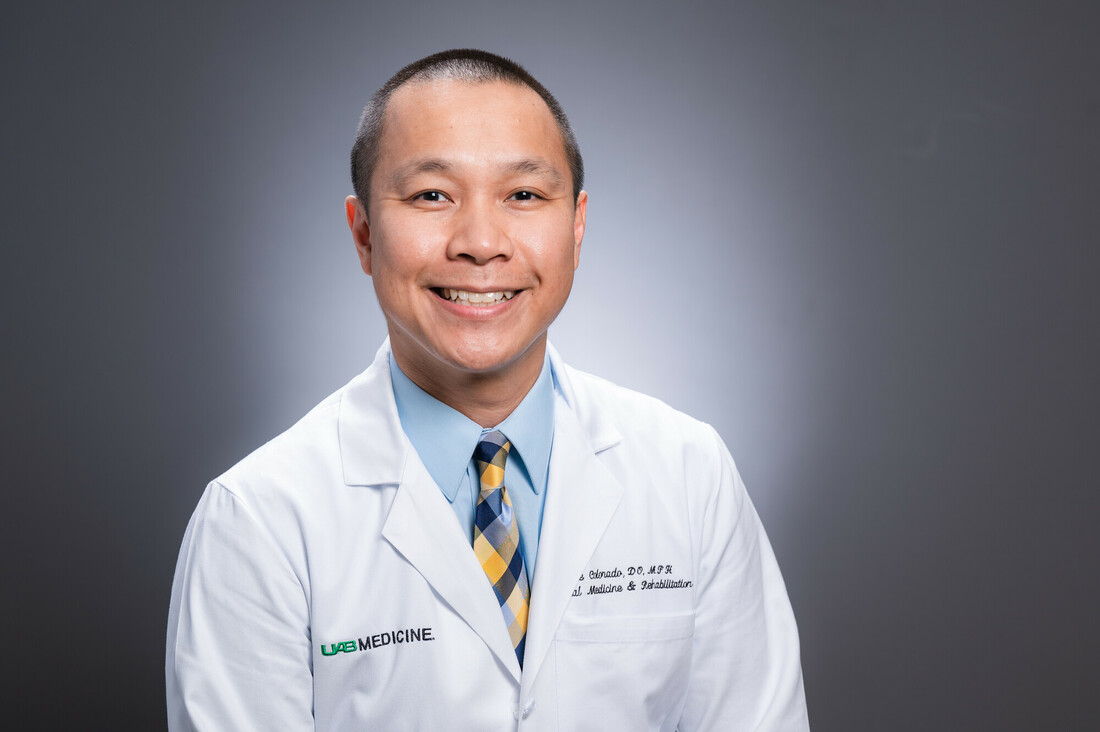 Dale Colorado, D.O. was selected to serve on the American Board of Family Medicine (ABFM) Sports Medicine Assessment Committee. This committee is comprised of representatives from Physical Medicine and Rehabilitation, Pediatrics, Emergency Medicine, Internal Medicine, and Family Medicine.
Dale Colorado, D.O. was selected to serve on the American Board of Family Medicine (ABFM) Sports Medicine Assessment Committee. This committee is comprised of representatives from Physical Medicine and Rehabilitation, Pediatrics, Emergency Medicine, Internal Medicine, and Family Medicine.
The Sports Medicine Assessment Committee develops and reviews items for the Sports Medicine subspecialty examination. Dr. Colorado will serve a three-year term on the Committee.
Dr. Dale Colorado is Associate Professor and Vice Chair of Education in the Department of Physical Medicine and Rehabilitation (PM&R) at the University of Alabama at Birmingham (UAB). He serves as PM&R Residency Program Director and Director of Sports, Musculoskeletal Medicine. Dr. Colorado is also a team physician for UAB Athletics and a part of the UAB Sports & Exercise Medicine Program.
Colorado Selected for AAPM&R Future Leaders Program
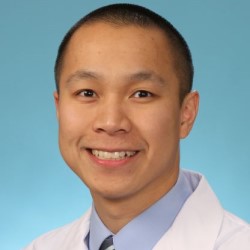
Dale Colorado, D.O., MPH, Associate Professor and Vice-Chair of Education in the UAB Heersink School of Medicine Department of Physical Medicine and Rehabilitation, was one of 10 physiatrists recently selected by the American Academy of Physical Medicine and Rehabilitation (AAPM&R) for the AAPM&R Future Leaders Program.
The AAPM&R Future Leaders Program (formerly the Academy Leadership Program) was established by the Board of Governors in 2012 to identify a select number of diverse, emerging member leaders and to prepare them for specialty leadership and volunteerism, to encourage pursuit of future leadership positions, and to empower the specialty through the changes occurring in the health care environment.
As members of the 2022-2024 leadership class, participants go through a two-year curriculum that introduces them to association leadership, strategic planning, media skills, advocacy, and Academy governance, products and services.
The American Academy of Physical Medicine and Rehabilitation (AAPM&R) is the national medical specialty organization representing more than 10,000 physicians who are specialists in physical medicine and rehabilitation (PM&R). PM&R physicians, also known as physiatrists, treat a wide variety of medical conditions affecting the brain, spinal cord, nerves, bones, joints, ligaments, muscles, and tendons. Physiatrists utilize cutting‐edge as well as time‐tested treatments to maximize function and quality of life.
Department welcomes Koplik
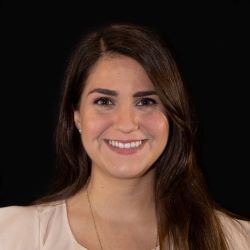 The UAB Department of Physical Medicine and Rehabilitation welcomes Assistant Professor Lisa Koplik, M.D., effective November 1, 2022. Dr. Koplik joins the department as a Physiatrist with a specialization in pain management.
The UAB Department of Physical Medicine and Rehabilitation welcomes Assistant Professor Lisa Koplik, M.D., effective November 1, 2022. Dr. Koplik joins the department as a Physiatrist with a specialization in pain management.
In her prior role as pain medicine physician at Alabama Anesthesiology and Pain Consultants in Pell City, Alabama, she performed interventional pain procedures and evaluated patients suffering from pain due to a variety of conditions.
Dr. Koplik received her medical degree from the Universidad Central del Caribe School of Medicine in Bayamon, Puerto Rico followed by an Internal Medicine internship and Physical Medicine and Rehabilitation Residency at the VA Caribbean Healthcare System in San Juan, Puerto Rico. She completed her pain medicine fellowship at the University of Alabama at Birmingham.
“UAB is one of the top medical institutions in the country. Having the opportunity to train here made me want to return to UAB and join the academic faculty. I am excited for the opportunity to grow the area of pain management at UAB and look forward to serving patients in our community. Having an institution and department that values leadership, teamwork and fosters cultural diversity were some of the important factors of why I chose to join UAB,” says Dr. Koplik.
Brunner discusses spasticity rehabilitation and treatment options on UAB MedCast
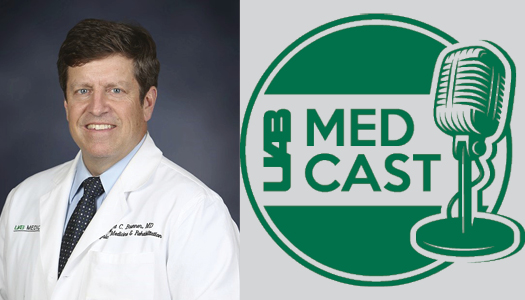
Any injury or illness that affects the spinal cord can cause spasticity, an increase in muscle stiffness that can lead to immobility.
In this podcast, physiatrist Bobby Brunner, M.D. discusses some common disorders that result in spasticity and the wide spectrum of its severity. He walks listeners through the considerations a physiatrist would make in determining how to address spasticity. Dr. Brunner explores a progression of treatment options for spasticity: physical therapy, injection therapies, pump system implantation, and surgery.
UAB MedCast is a weekly series of continuing medical education (CME) podcasts that highlights the latest clinical and research innovations at UAB Medicine.
Burrows selected to Alabama State Board of Prosthetists and Orthotists
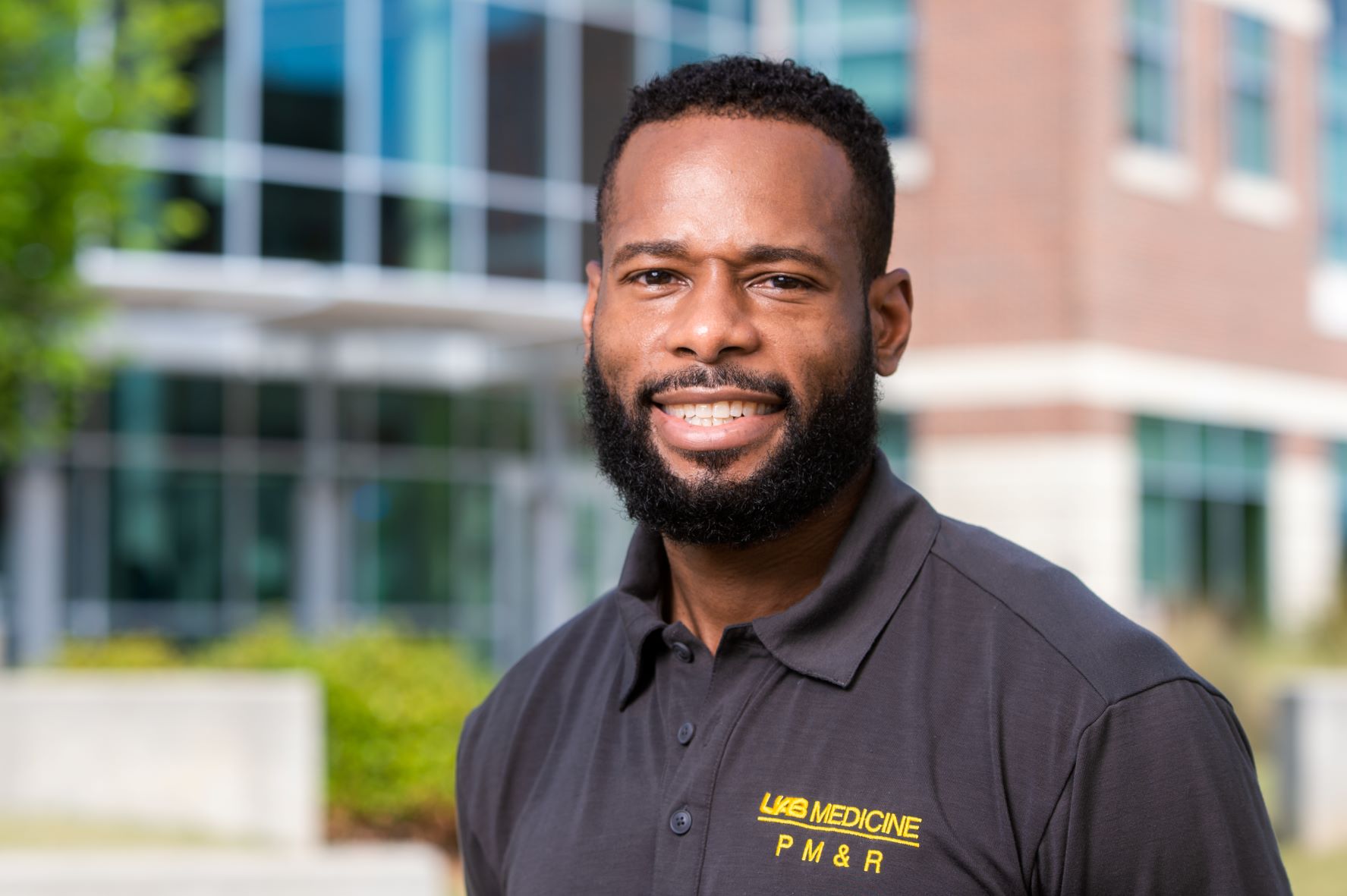
Orthotist Antwaun Burroughs was recently appointed to the Alabama State Board of Prosthetists and Orthotists.
The Board's mission is to safeguard the health, safety, and welfare of the people of Alabama against the unauthorized, unqualified, and improper administration of prosthetic and orthotic care. Given that, it is necessary to provide for the licensing and regulation of persons offering prosthetic and orthotic services to the public.
Burroughs position takes effect immediately and runs through September 2024.
Welcome new PM&R providers
We are excited to introduce our newest providers in the UAB Department of Physical Medicine and Rehabilitation. Click here to schedule an appointment.
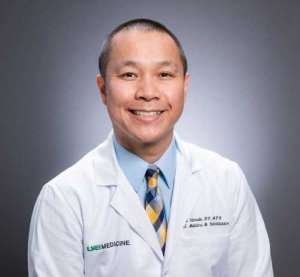 Dale Colorado, D.O., M.P.H.
Dale Colorado, D.O., M.P.H.
Dr. Colorado joins UAB Medicine PM&R as an associate professor and vice chair of education. He also serves as the director of the residency program and director of sports & musculoskeletal medicine. His specialities include orthopedic sports medicine, non-operative orthopedics, musculoskeletal medicine, and adaptive sports.
Learn more about Dr. Colorado.
 Rachel Teranishi, M.D.
Rachel Teranishi, M.D.
Dr. Teranishi joins UAB Medicine PM&R as an assistant professor. Teranishi has specialized training and interest in the field of brain injury medicine, including traumatic brain injury (TBI), anoxic brain injury, and stroke. Her goal is to provide individualized care, education, and compassion to patients and families recovering from illness or injury.
Learn more about Dr. Teranishi.
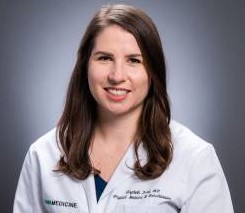 Elizabeth Twist, M.D.
Elizabeth Twist, M.D.
Dr. Twist joins UAB Medicine PM&R as an assistant professor specializing in the field of spinal cord injury and spinal disorders. Dr. Twist is involved in direct patient care for spinal cord injury consults and inpatients at UAB and the Spain Rehabilitation outpatient clinic spinal cord injury service.
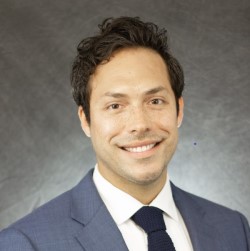 Johan Latorre, M.D.
Johan Latorre, M.D.
Dr. Latorre joins UAB Medicine PM&R as an assistant professor specializing in sports medicine, adaptive sports, and musculoskeletal issues. Dr. Latorre’s clinical practice will assess patients’ needs suffered during athletic events such as musculoskeletal issues and concussion protocols.
 Lisa Koplik Humphries, M.D.
Lisa Koplik Humphries, M.D.
Dr. Koplik Humphries joins UAB Medicine PM&R as an assistant professor with a specialty in pain management. Dr. Koplik Humphries’s clinical practice will assess treatment for patients who suffer from pain due to a variety of conditions.
Department welcomes Biney
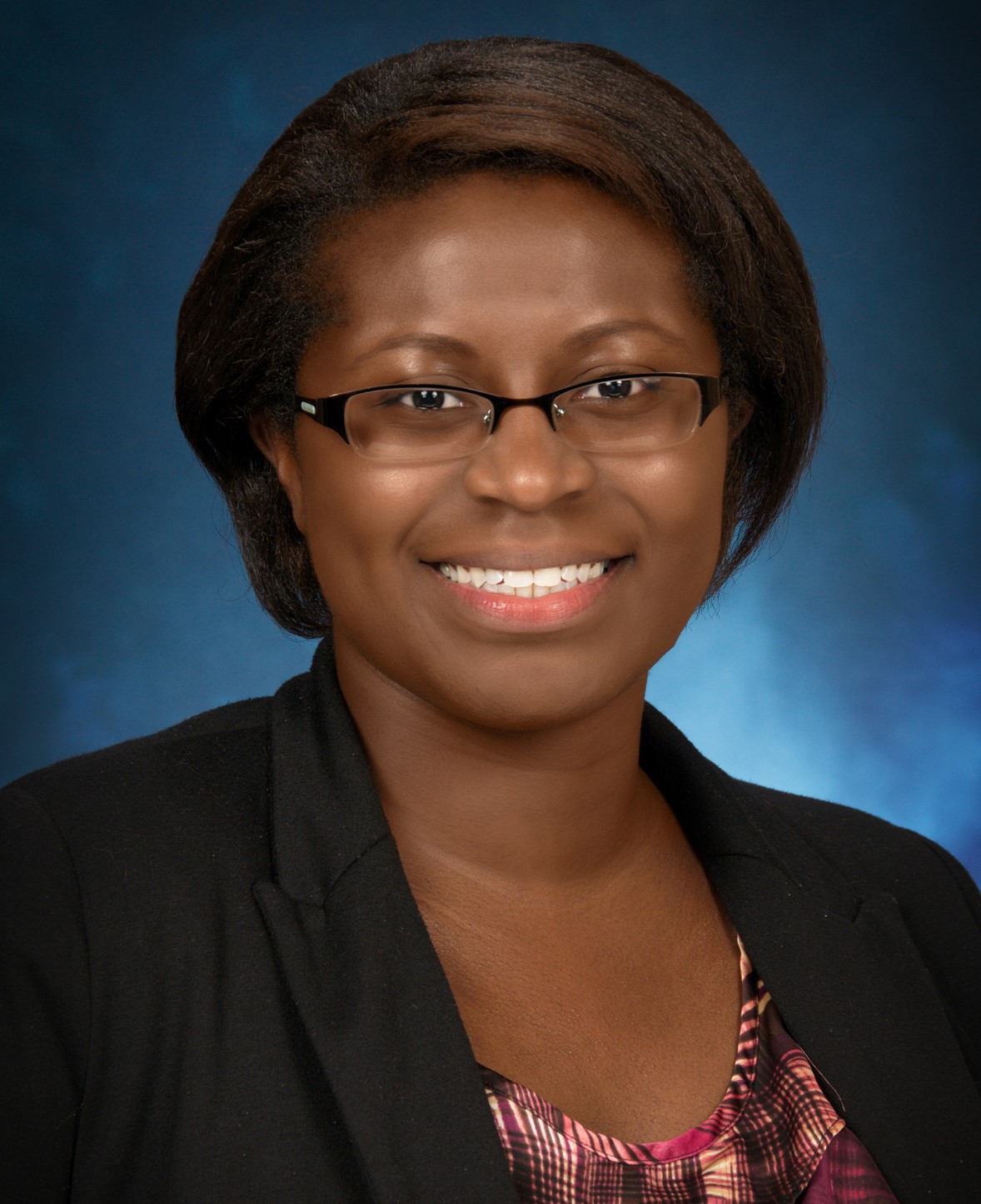 The UAB Department of Physical Medicine and Rehabilitation welcomes Assistant Professor Fedora Biney, Ph.D. effective December 1, 2022. Dr. Biney joins the department as a neuropsychologist with specialization in neuropsychological interventions for individuals with strokes and traumatic brain injury. Dr. Biney earned her doctorate degree in Clinical Psychology from the University of Houston.
The UAB Department of Physical Medicine and Rehabilitation welcomes Assistant Professor Fedora Biney, Ph.D. effective December 1, 2022. Dr. Biney joins the department as a neuropsychologist with specialization in neuropsychological interventions for individuals with strokes and traumatic brain injury. Dr. Biney earned her doctorate degree in Clinical Psychology from the University of Houston.
"I am very excited to join the faculty and staff in the PM&R department. I chose to come to UAB because of its solid reputation in rehabilitation research and for the opportunity to both learn from and contribute to research that helps individuals with acquired brain injuries return to meaningful and purposeful life activities," says Biney.
Baker selected for Wound Scholar Advanced Program
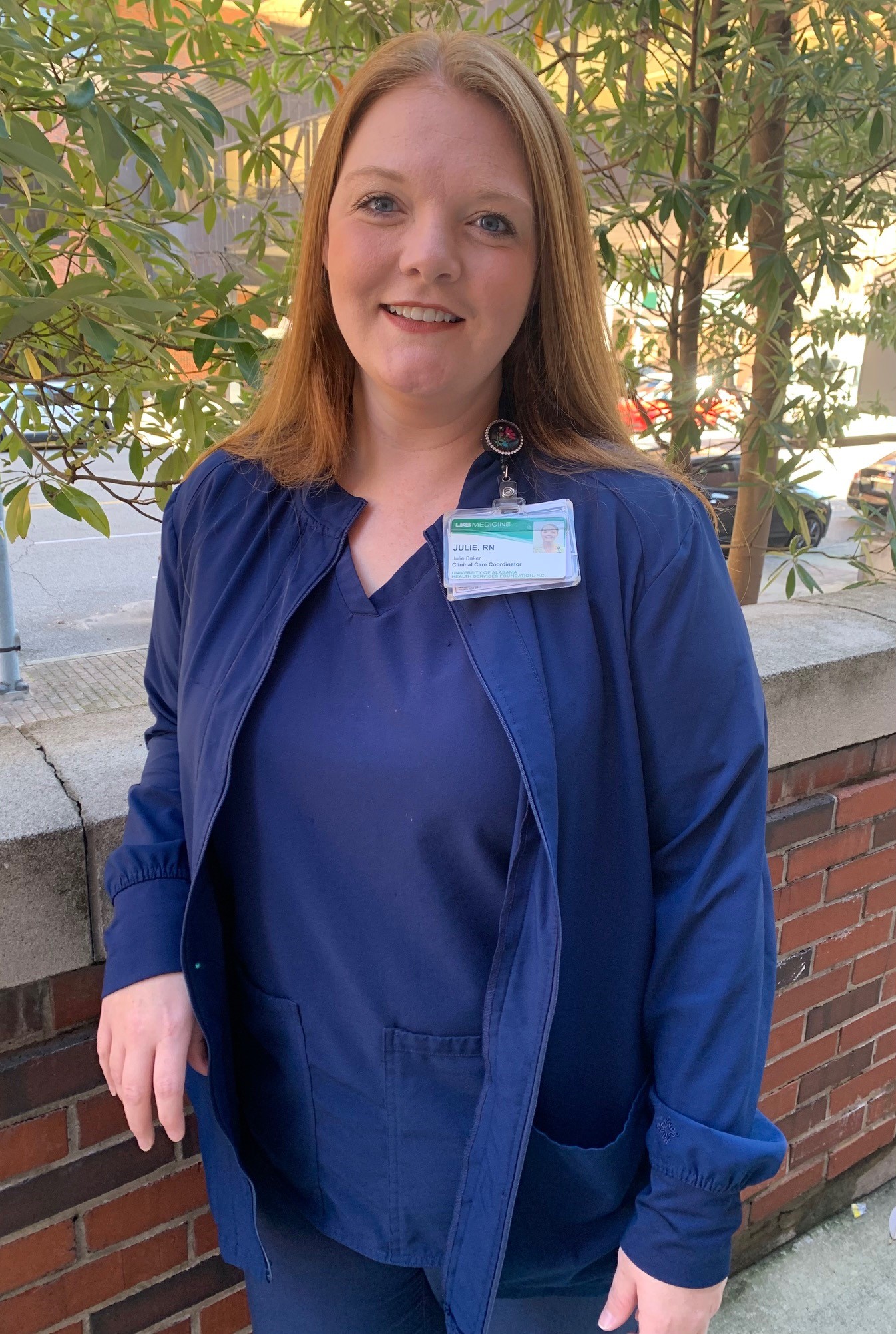 Julie Baker, RN, BSN was selected to participate in UAB Medicine’s highly competitive Wound Scholar Advanced Program. Julie has been a member of the University of Alabama in Birmingham’s Department of Physical Medicine and Rehabilitation for five years. As a clinical care coordinator for the department’s Vice Chair of Clinical Operations, Danielle Powell, MD, Julie’s role at Spain Rehabilitation Center allows her to extend wound care to patients in the adult spina bifida clinic as well as the cancer rehabilitation program.
Julie Baker, RN, BSN was selected to participate in UAB Medicine’s highly competitive Wound Scholar Advanced Program. Julie has been a member of the University of Alabama in Birmingham’s Department of Physical Medicine and Rehabilitation for five years. As a clinical care coordinator for the department’s Vice Chair of Clinical Operations, Danielle Powell, MD, Julie’s role at Spain Rehabilitation Center allows her to extend wound care to patients in the adult spina bifida clinic as well as the cancer rehabilitation program.
Because UAB is passionate about continuing to develop a culture of clinical excellence in all aspects of patient and family care services, one area identified for having tremendous potential to impact quality of care is with adults who have wound or skin care needs. As a result, the Wound Scholar Program was developed by UAB Hospital’s Wound Ostomy and Continence Team (WOCT) to empower frontline staff to meet the growing need for wound care prevention and treatment at the bedside.
“Many of my patients have wounds or are at risk for developing skin care needs. This program will train me to assist my team and support patients and their families on the path to a quicker recovery. Ultimately, the knowledge I gain will equip me to disseminate new and best practices regarding wounds to additional providers and staff here in PM&R. I look forward to being a resource in wound care for my colleagues,” stated Baker.
This 18-month professional development program has been designed to identify champions in wound care, formally develop an in-depth knowledge of caring for the hospitalized adult requiring wound care treatment or prevention, and implement evidence-based principles as part of care for this target population. The program provides formal education for participants and challenging opportunities for improving the care of adults with wounds, pressure injuries, and preventive needs at UAB Hospital.
Year in Review
 As another year comes to a close, we look to the role of UAB’s clinicians, researchers, residents, and team members and how they shape the future of rehabilitation at the University of Alabama at Birmingham. UAB Rehabilitation is among the largest, integrated rehabilitation systems in the nation that serves the full spectrum of disability, musculoskeletal, and sports care.
As another year comes to a close, we look to the role of UAB’s clinicians, researchers, residents, and team members and how they shape the future of rehabilitation at the University of Alabama at Birmingham. UAB Rehabilitation is among the largest, integrated rehabilitation systems in the nation that serves the full spectrum of disability, musculoskeletal, and sports care.
The Department of PM&R is excited to share some highlights from a very successful year. We kicked off 2022 with new leadership. In January, Vu Nguyen, M.D., MBA was named the sixth chairperson of the department. Dr. Nguyen’s vision for the department has been instrumental in the PM&R team’s many accomplishments.
Clinical:
• UAB Medicine Rehabilitation was ranked number 20 in the nation by U.S. News & World Report.
• Recruited 6 physiatrists, 2 neuropsychologists, 2 certified orthotists/prosthetists, and 1 occupational medicine provider.
• Broke ground on the new state-of-the-art UAB Inpatient Rehabilitation Hospital. It will be an 11 floors freestanding rehabilitation hospital connected to UAB Hospital via skywalks. The facility will feature a rooftop courtyard, rehabilitation gyms on each floor, outdoor terrain park, office meeting space, parking for more than 200 vehicles, and will be our tertiary-referral flagship rehabilitation hospital.
• Developed a new leadership team - Danielle Powell, M.D. named Vice Chair of Clinical Operations; Robert Brunner, M.D., named Vice Chair of PM&R Development; Yuying Chen, M.D., Ph.D. promoted to PM&R Director of Research; and Dale Colorado, D.O., M.P.H. named Vice Chair of PM&R Education, Medical Director, Sports and Musculoskeletal Medicine, and Program Director for the PM&R Residency Program.
• Orthotist Antwaun Burroughs appointed to the Alabama State Board of Prosthetists & Orthotists.
• Vu Nguyen, M.D. named as the North American representative to the executive committee of the International Society of Physical and Rehabilitation Medicine and member of the Accreditation Council for Graduate Medical Education Physical Medicine and Rehabilitation Review Committee.
• Megan Hays, Ph.D., associate professor, awarded the 2022 Dean’s Excellence Award for Service as a junior faculty member.
• Dale Colorado, D.O., MPH selected for AAPM&R Future Leaders Program.
Research:
• Renewal of our $3.4 million National Spinal Cord Injury Statistical Center 5-year grant. UAB Rehabilitation has held the distinction of being the only NSCISC in the nation continuously since 1983.
• Renewals of our $2 million Spinal Cord Injury Model System grant and a $2.2 million Traumatic Brain Injury Model Systems grant.
• Dr. Jereme Wilroy, Ph.D. named Director of Research for Lakeshore Foundation.
• Rachel Cowan, Ph.D. joined Veteran Affairs Rehabilitation Engineering & Prosthetics/Orthotics Scientific Merit Review Board.
• Xiaohua Zhou, M.D. and Cassandra Buchanan Renfro, D.O. authored the book “Physical Medicine and Rehabilitation Clinics of North America: Wound and Skin Care”.
• Fedora Biney, Ph.D. received a NIH supplement in diversity grant to support the research project “Transferring Speed of Processing Gains to Everyday Cognitive Tasks after Stroke”.
• Dr. Jereme Wilroy, Ph.D. named co-director and Rachel Cowan, Ph.D. name director of the UAB Spinal Cord Injury Model System.
• PM&R medical student Hunter Soleymani received first place in the research category for his poster, "Accuracy and precision of actigraphy and SMARTwheels for measuring push counts across a series of wheelchair propulsion trials in able-bodied young adults."
• Yumi Kim, Ph.D. received 3rd place in ACRM's poster competition for “Qualitative exploration of tele-exercise program to inform adaptive intervention design for adults with multiple sclerosis”.
• Wendy Wen, Ph.D. received an Outstanding Achievement Award for her poster presentation “Experiences with COVID-19 pandemic in the spinal cord injury community in Alabama” at the UAB Interdisciplinary Research Symposium.
Academic:
• Dale Colorado, D.O., M.P.H. named Program Director for the PM&R Residency Program.
• Successfully achieved ACGME approval for transitioning the PM&R residency program to a Categorical 4-year PM&R residency training program. We are recruiting for 4 new PGY-1 positions this year.
• Re-established our Orthotics and Prosthetics residency program and are recruiting for this training program.
PM&R residents learn from Lakeshore Foundation partnership
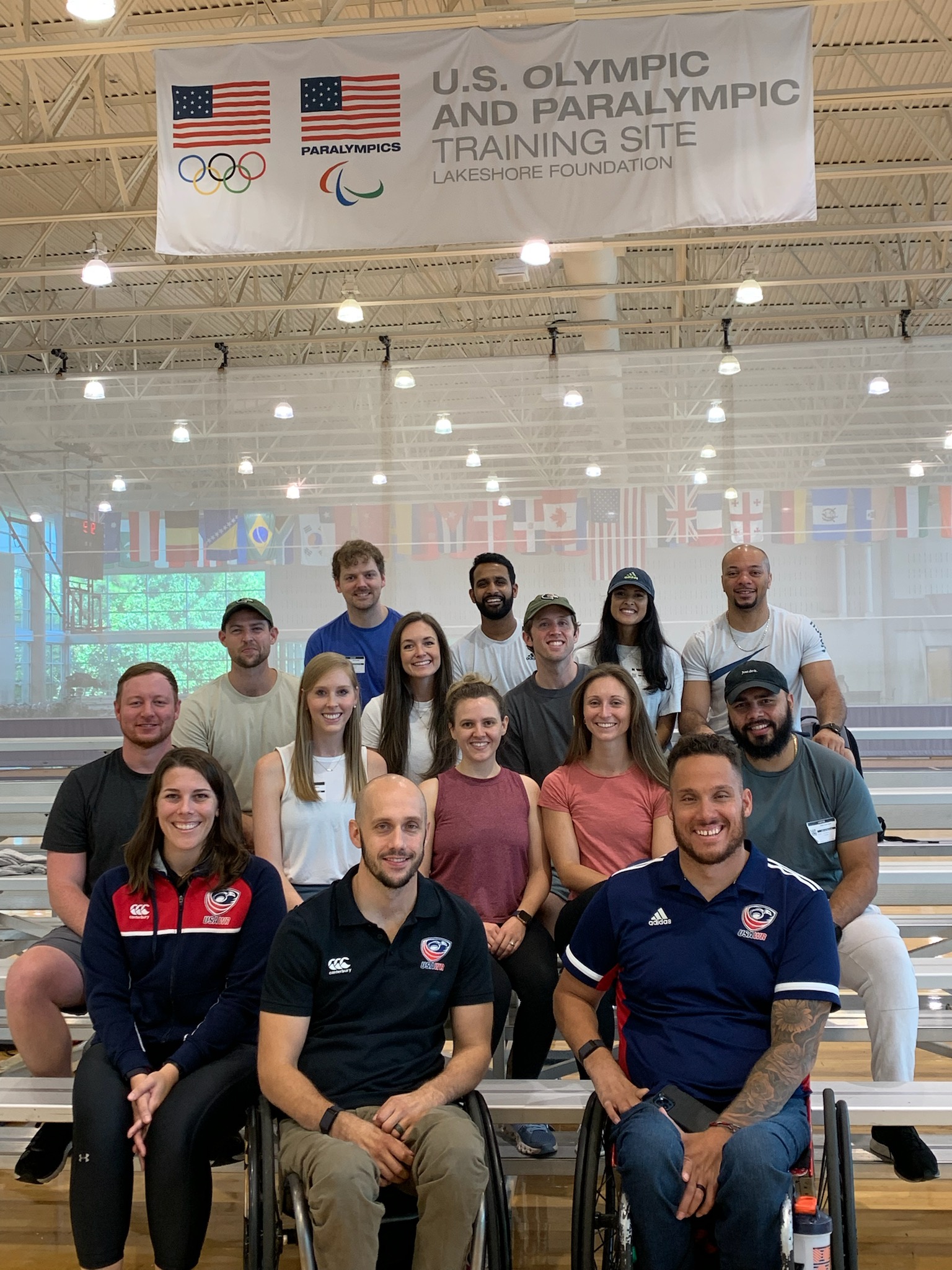 The UAB Department of Physical Medicine and Rehabilitation leads the way in meeting the needs of individuals with disabilities through compassionate care, cutting-edge research, and training the next generation of professionals. To further this mission, PM&R residents spent the day at the Lakeshore Foundation as part of their annual retreat.
The UAB Department of Physical Medicine and Rehabilitation leads the way in meeting the needs of individuals with disabilities through compassionate care, cutting-edge research, and training the next generation of professionals. To further this mission, PM&R residents spent the day at the Lakeshore Foundation as part of their annual retreat.
Over the years UAB PM&R and Lakeshore Foundation have developed a partnership with the shared goal of promoting opportunities for a healthy and active lifestyle for individuals with disability through research and advocacy. This educational visit allowed the residents to learn about the resources Lakeshore offers people with disability in and around the Birmingham area.
Lakeshore is as an Olympic and Paralympic Training Site, and the home of USA Wheelchair Rugby strengthening the ongoing commitment to the development of adaptive sports. PM&R residents have had the opportunity to learn from UAB PM&R faculty members with a passion for adaptive sports, but this visit allowed them to experience it for themselves.
One highlight of the day for residents was learning how to play wheelchair basketball. They also had the honor of being courtside with the USA men’s wheelchair rugby team holding practice onsite. The rugby coaches spoke to the residents about their experiences that led them to their coaching role, what a day in the life of a wheelchair rugby player is like, and how physiatrists can better help and understand what these players are going through.
Chief residents Jacob Schultz, M.D. and Brea Willeford, D.O. knew their visit to Lakeshore would be beneficial to the group of 12 PM&R residents, but the experience exceeded even their expectations.
“As a physiatrist, understanding disability in all its stages is key to providing excellent patient care. Since residents frequently see it in the early stages during an acute hospital stay, it is enlightening and inspiring to see people flourish in spite of it as time passes. I believe we can use our experiences from our Lakeshore visit to encourage our future patients to access these amazing resources so readily available here in Birmingham,” stated Schultz.
Azuero named Interim Division Director of Psychology
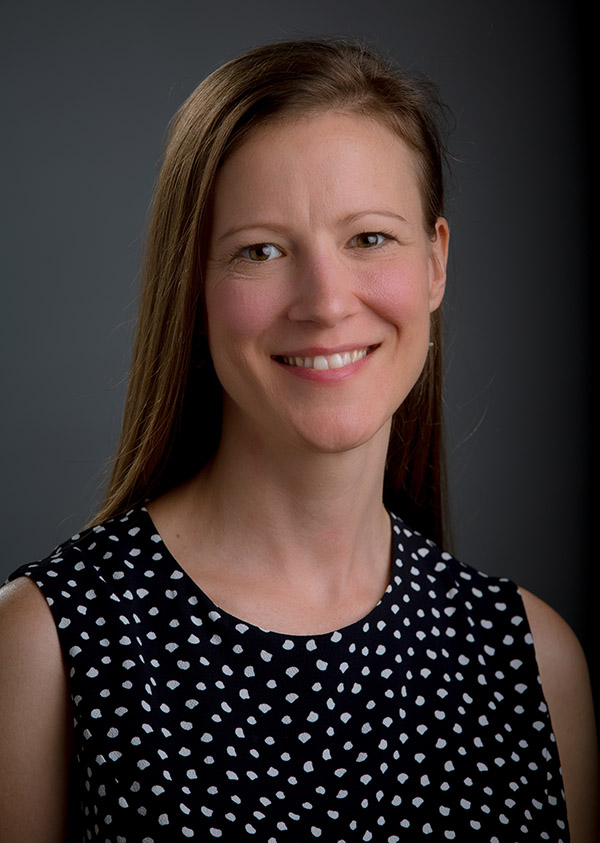 Casey Azuero, Ph.D., MPH, Associate Professor in the University of Alabama at Birmingham’s Department of Physical Medicine and Rehabilitation, has been named Interim Division Director of Rehabilitation Psychology at Spain Rehabilitation Center (SRC). She replaces Dr. Amy Knight who previously held the position.
Casey Azuero, Ph.D., MPH, Associate Professor in the University of Alabama at Birmingham’s Department of Physical Medicine and Rehabilitation, has been named Interim Division Director of Rehabilitation Psychology at Spain Rehabilitation Center (SRC). She replaces Dr. Amy Knight who previously held the position.
Dr. Azuero joined the Department of PM&R as an assistant professor in 2017 following her postdoctoral training at UAB in Rehabilitation Psychology under J. Scott Richards, Ph.D., ABPP. She is Board Certified in Rehabilitation Psychology by the American Board of Professional Psychology.
In addition to her role in PM&R’s psychology department, she also consults for other specialties with the UAB Health System, including Trauma (TBICU, TBNU) Service, Surgery and Neurosurgery (NICU) Services, and Special Care Unit (SICU) Services.
Dr. Azuero received her Ph.D. in Clinical Psychology from the University of Alabama and her Master in Public Health in Health Behavior and a Bachelor of Science in Psychology from the University of Alabama at Birmingham (UAB). She completed an internship in clinical psychology at the UAB/Birmingham Veterans Administration Medical Center consortium.
Dr. Azuero’s clinical practice involves the assessment and treatment of adults with chronic conditions including spinal cord injury and other medical conditions. Her research has focused on understanding the utilization of mental health services and designing and testing novel intervention delivery methods.
Dr. Azuero’s passion for psychology can be noted nationally. She is currently a Spinal Cord Injury Medicine Consortium representative for American Congress of Rehabilitation Medicine; a member of the Paralyzed Veterans of America Clinical Practice Guideline Committee; and an American Board of Rehabilitation Psychology (ABRP) Board practice sample reviewer. On the university level, Dr. Azuero is the Director of Wellness and Resident Professional Development as well as Training Director for the Rehabilitation Psychology Post-Doctoral Fellowship.
“I am very excited to take on this new leadership role in the department and have been humbled and hold deep gratitude for all of the support I have received from my colleagues so far. Under her leadership, Dr. Knight has grown our division and I look to continue the work of expansion and diversification moving forward,” stated Azuero.
Walters selected for DEAL Program
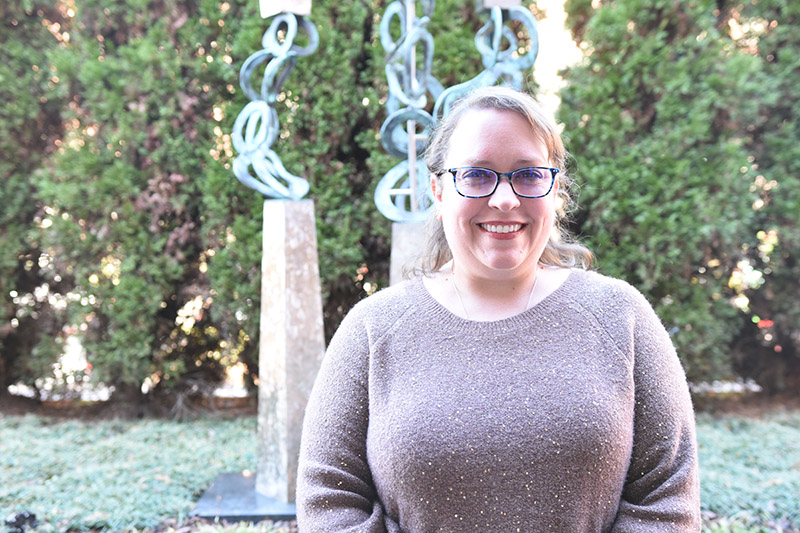 Stephanie Walters, Human Resources Manager for the Department of Physical Medicine & Rehabilitation, has been selected for the Developing Emerging Administrative Leaders (DEAL) Program.
Stephanie Walters, Human Resources Manager for the Department of Physical Medicine & Rehabilitation, has been selected for the Developing Emerging Administrative Leaders (DEAL) Program.
This program takes a multidisciplinary approach in exposing key UAB staff members to the essential components of administrative and management positions across UAB including human resources, finance, research, education, and clinical. Participants will have the opportunity for personal development through mentoring, networking, and first-hand experiences with existing administrative leaders from multiple UAB schools.
Walters is among 25 participants selected for the program. The program consists of 10 sessions beginning in Feb. 2023 and concluding in Nov. 2023.
Cowan working with the World Health Organization to co-author Global Wheelchair Service Guidelines
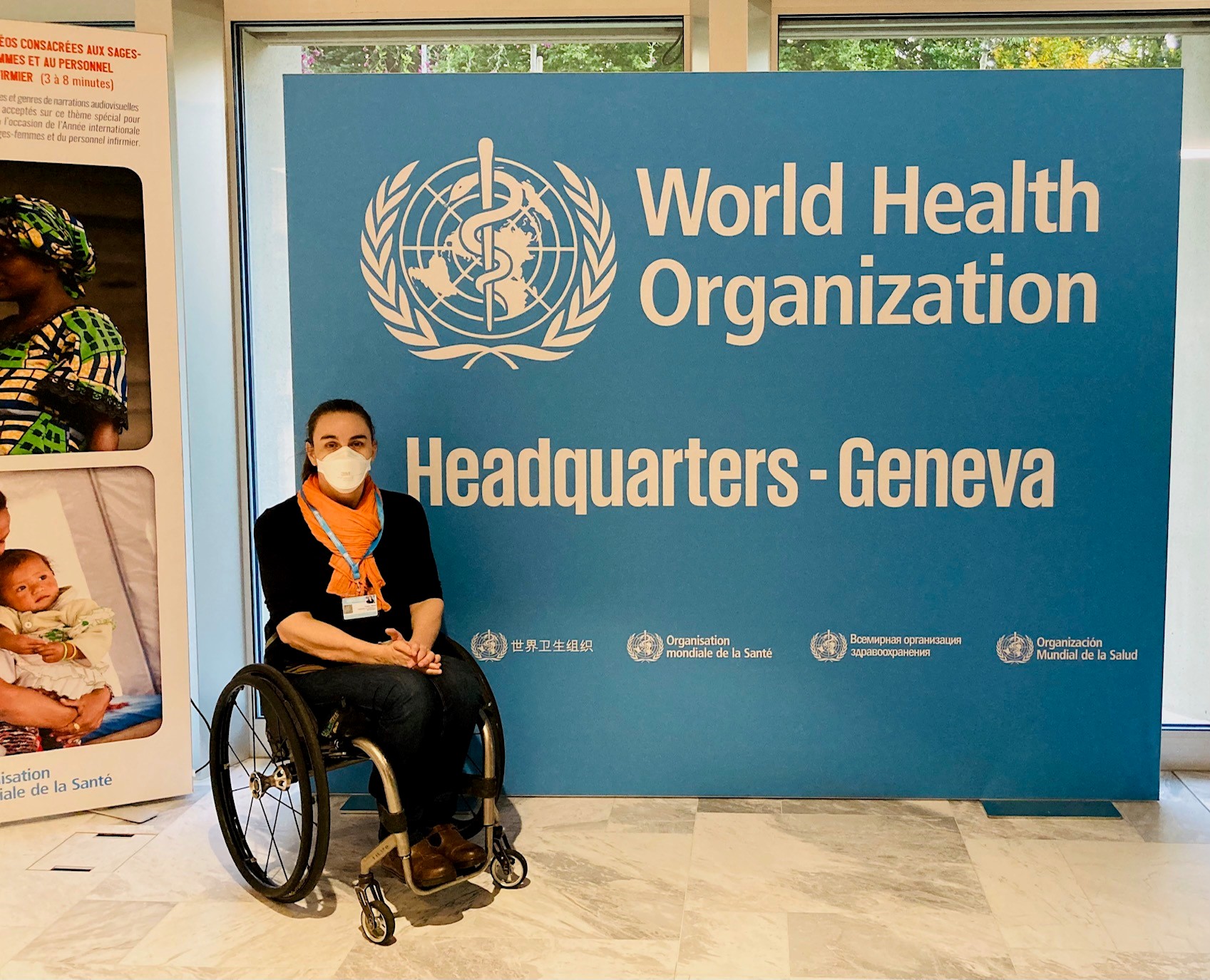 Rachel Cowan, Ph.D, Assistant Professor in the University of Alabama at Birmingham’s Department of Physical Medicine and Rehabilitation and program director for the UAB’s Spinal Cord Injury Model System, is co-chairing the World Health Organization (WHO) Global Wheelchair Service Guidelines Develop Group (GDG) and co-authoring the Wheelchair Service Guidelines alongside Kylie Shae and Sarah Sheldon.
Rachel Cowan, Ph.D, Assistant Professor in the University of Alabama at Birmingham’s Department of Physical Medicine and Rehabilitation and program director for the UAB’s Spinal Cord Injury Model System, is co-chairing the World Health Organization (WHO) Global Wheelchair Service Guidelines Develop Group (GDG) and co-authoring the Wheelchair Service Guidelines alongside Kylie Shae and Sarah Sheldon.
In recent decades substantial progress has been made within the wheelchair sector; however, the need to develop global policy and standards for wheelchair provision remains. The U.S. Agency for International Development (USAID) led a Wheelchair Stakeholders’ Meeting held in Bangalore, India in 2018, and identified establishing global service standards as one of 10 key priorities for the sector. In the same year the World Health Assembly provided specific calls for the development of policy on assistive technology, requesting Member States to contribute to and engage in the development of minimum standards for priority assistive products and services, in order to promote their safety, quality, cost-effectiveness, and appropriateness in Resolution 71.8 (2018) “Improving access to assistive technology”. The new Guidelines will promote, inform, and support planning, delivery, and evaluation of wheelchair services within health systems, in order to strengthen equitable access to wheelchair services in diverse contexts by people of all ages with a mobility impairment.
Guideline development at WHO follows a rigorous process of developing PICO (person, intervention, comparator, outcome) questions, performing systematic reviews, and following an Evidence to Decision (EtD) process to ensure the resulting recommendations are based on the best available scientific and practice-based evidence. Due to Dr. Cowan’s extensive scientific knowledge and experience in the area of wheelchair seating and mobility, she has played a substantial role in leading the Guidelines Development Group through the Evidence to Decision (EtD) process. After much research and discussion, she then took the group’s collective input and drafted the recommendations section of the Guidelines.
There were obstacles along the way to compiling data for the guidelines. “The group process was particularly challenging because the GDG members were largely non-academics without scientific training. And, because of COVID, we had to do the majority of the work virtually rather than in person limiting ease of communication and consultation with key stakeholders,” Cowan stated.
By the time the group officially met in person at WHO Headquarters in Geneva, Switzerland in October 2022, draft guidelines had been developed, following an in-depth two-year process. These guidelines provide a set of evidence-based recommendations and best practice guidance to support countries in developing or improving essential wheelchair services. Adoption of these guidelines will support governments in fulfilling their obligation to implement the UN Convention on the Rights of Persons with Disabilities (CRPD) which places responsibility on governments to prioritize the provision of assistive technology for personal mobility. The guidelines will also aid Member States in meeting the Sustainable Development Goals (SDGs), in particular the goal to ensure healthy lives and promote well-being for all at all ages.
The goal is to provide the final guidelines to use in assisting any government to develop or enhance national policies, plans, and programs for the provision of essential wheelchair services. The official launch of the Guidelines will take place at the April 2023 meeting of the International Society for Prosthetics and Orthotics in Guadalajara, Mexico.
Biney receives NIA Diversity Supplement Grant
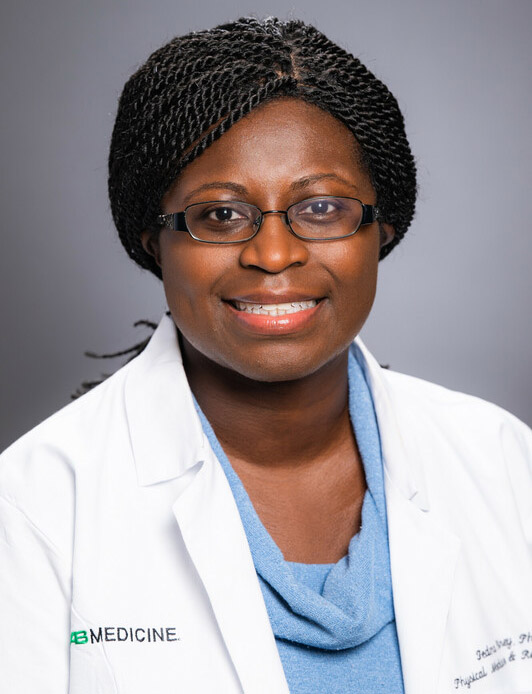 Fedora Biney, Ph.D., Assistant Professor in the University of Alabama at Birmingham’s Department of Physical Medicine and Rehabilitation, received a diversity supplement grant from the National Institute on Aging (NIA) supporting ongoing research on the topic “Transferring Speed of Processing Gains to Everyday Cognitive Tasks after Stroke”.
Fedora Biney, Ph.D., Assistant Professor in the University of Alabama at Birmingham’s Department of Physical Medicine and Rehabilitation, received a diversity supplement grant from the National Institute on Aging (NIA) supporting ongoing research on the topic “Transferring Speed of Processing Gains to Everyday Cognitive Tasks after Stroke”.
These federal funds are provided under the National Institutes of Health (NIH)’s research supplement program to promote diversity in health-related research and support emerging researchers with mentor-directed opportunities that foster and expand their research capabilities, knowledge, and skills in diverse aging research areas.
Dr. Biney conducts her research with the Constraint-Induced (CI) Therapy Research Group and centers around CI Therapy, a well-known therapeutic approach to rehabilitation after stroke, multiple sclerosis (MS) and traumatic brain injury (TBI). CI Therapy consists of a family of treatments that teach the brain to “rewire” itself following an injury to the brain. CI therapy is based on research by Edward Taub, Ph.D., UAB Professor in the Department of Psychology, which shows patients can “learn” to improve movement of the weaker parts of their bodies and their speech. CI Therapy has been instrumental in updating previously held beliefs in rehabilitation regarding limits of brain recovery and neuroplasticity. It has impacted even the terminology used by rehabilitation professionals as the well-known term ‘learned non-use’ was coined as part of Dr. Taub’s work on somatosensory deafferentation in primates.
CI Therapy utilizes a collection of behavioral techniques including intensive training, shaping, and a transfer package that is designed to generalize laboratory gains in function to real-world functioning. Constraint-Induced Movement Therapy (CIMT) has been successful in improving upper and lower extremity motor functioning following stroke, traumatic brain injury, multiple sclerosis, and other neurological conditions. Constraint-Induced Aphasia Therapy (CIAT) has been used to improve communication in individuals with aphasia following stroke.
At this time, the CI Therapy Research Group is actively recruiting participants for an NIA-funded project looking at adults that are more than one year post-stroke with mild-to-moderate cognitive difficulties who are experiencing difficulties with instrumental activities of daily living (IADLs). The intervention will compare CICT to an equal dose of state-of-the-art brain fitness training. Given the past success of previous applications of CI Therapy, CICT is expected to foster improvements in IADL performance. In addition, MRI data is being collected to evaluate changes in brain structure and function. The CI Therapy Research Group is also running a pilot, randomized control trial of CICT in adults with long COVID experiencing brain fog and cognitive difficulties. This research aims to improve functional independence and brain fog symptoms.
Dr. Biney is proud to be a part of this life-changing research. She added, “Given that cognitive deficits often hinder an individual’s ability to fulfill vocational, social, and family roles, it is exciting to be at the forefront of an intervention aimed at improving functional independence.”
Building on the Foundation of UAB Medicine Rehabilitation: An Interview with Robert Brunner, M.D.
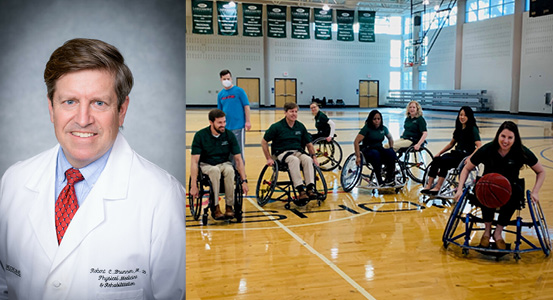 The UAB Department of Physical Medicine and Rehabilitation is leading the way in meeting the needs of individuals with disabilities through compassionate care, cutting-edge research, and training the next generation of professionals. We sat down with the Vice-Chair of PM&R Development, Robert Brunner, M.D. to discuss the department's continued growth and excellence in patient care.
The UAB Department of Physical Medicine and Rehabilitation is leading the way in meeting the needs of individuals with disabilities through compassionate care, cutting-edge research, and training the next generation of professionals. We sat down with the Vice-Chair of PM&R Development, Robert Brunner, M.D. to discuss the department's continued growth and excellence in patient care.
Q: Dr. Brunner, you’ve been a faculty member in UAB’s Department of Physical Medicine & Rehabilitation for over 20 years. Tell us more about your role and how it has evolved.
A: I’m proud to represent the work of UAB Medicine Rehabilitation. We’ve served and advocated for people with disability since UAB Spain Rehabilitation opened its doors in 1964. Over the years, my roles have changed. I have been involved with clinical, research, educational and operational activities. With our new Chair, Dr. Vu Q. C. Nguyen came a vision of an expanded leadership structure. My current leadership focus is on the development of our department within our health care system, faculty, and grateful patients all of whom want to help support us in our future vision.
My roles in the department include: Vice-Chair of Professional Development & Professor; Medical Director, Spain Rehabilitation Center; Project Director, UAB Traumatic Brain Injury Model System; Director, Traumatic Brain Injury Patient Services.
Q: What sets UAB Medicine Rehabilitation apart from other rehab hospitals?
A: UAB Medicine Rehabilitation is among the largest, integrated rehabilitation systems in the nation that serves the full spectrum of disability, neurorehabilitation, musculoskeletal, prosthetics, and sports care. In addition to traditional PM&R diagnostic groups, unique divisions within our department include inpatient and outpatient rehab and neuropsychology, comprehensive orthotics and prosthetics laboratory, and industry-leading occupational medicine practice. We have several unique interdisciplinary clinics such as wound care, transverse myelitis, and spina bifida. We are connected with The Children’s Hospital of Alabama and have transition clinics at UAB for those special populations that need on going care as an adult with disabilities.
On the research front, we are excited to share the renewal of our $3.4 million National SCI Statistical Center 5-year grant. UAB Rehabilitation has held the distinction of being the only NSCISC in the nation continuously since 1983. We were also successful in achieving renewals of our $2 million SCI Model Systems grant and a $2.2 million TBI Model Systems grant.
Q: I know it’s a priority to promote continued growth within the department. What’s been the focus to make that happen?
A: It takes the dedication from everyone that contributes to the success of UAB Medicine Rehabilitation - clinicians, researchers, residents, and team members. This past year we successfully recruited 6 physiatrists, 2 neuropsychologists, 2 certified orthotists/prosthetists, and 1 occupational medicine provider.
We also developed a new leadership team - Danielle Powell, M.D. named Vice-Chair of Clinical Operations; Yuying Chen, M.D., Ph.D. promoted to PM&R Director of Research; and Dale Colorado, D.O., M.P.H. named Vice-Chair of PM&R Education, Medical Director, Sports and Musculoskeletal Medicine, and Program Director for the PM&R Residency Program. This team will work with other faculty to set plans in motion for continued growth.
We initiated this process at a recent faculty retreat. In the coming year, the department is going to focus on recruiting additional researchers and clinician scientists to further our mission of expanding knowledge and training future clinicians.
Q: What was the goal of this year’s PM&R faculty retreat?
A: We always enjoy coming together as a group to focus on ways to offer the best patient care. This year our partner Lakeshore Foundation hosted our event. Being the home of U.S. Olympic & Paralympic Training Site, Lakeshore and UAB Rehabilitation share a mission to work with individuals with disabilities. We even had the opportunity to play wheelchair basketball. These were important team building exercises especially given our new faculty.
During the retreat we focused on three pillar goals: engagement, quality, and advancement of knowledge. We engaged in a robust discussion around wellness. Wellness is particularly important because of all the challenge health care workers face on a daily basis. As physiatrists we tend to focus on the health of the whole person, and that includes our team members.
Q: You talked about the department’s pillar goals. Can you walk me through what those goals entail?
A: Our group discussions focused on three pillar goals: engagement, quality, and advancement of knowledge.
1. Engagement- Develop and strengthen satisfying relationships and outreach between the department of PM&R and its patients, care teams, and community.
2. Quality- Implement standards and systems to continue achieving the best possible outcomes in clinical care and research.
3. Advancement of Knowledge - Support a learning health system that fosters and shares innovation and transforms care delivery for our patients.
Q: What excites you most about the future of UAB Medicine Rehabilitation?
A: UAB Medicine Rehabilitation continues to be ranked in the top 20 by US News & World Report. We’re thrilled that we’ll have the ability to serve more patients. In May, we broke ground on a new state-of-the-art UAB Inpatient Rehabilitation Hospital. It will be an 11-floor rehabilitation hospital connected to UAB Hospital via skywalks. The facility will feature a rooftop indoor/outdoor courtyard and therapy section, rehabilitation gyms on each floor, outdoor terrain park, multiple relaxing spaces for family and patients to explore, office and conference meeting space, parking for more than 200 vehicles, and will be our tertiary-referral flagship rehabilitation hospital. This new facility will provide limitless opportunities for exceptional patient care.